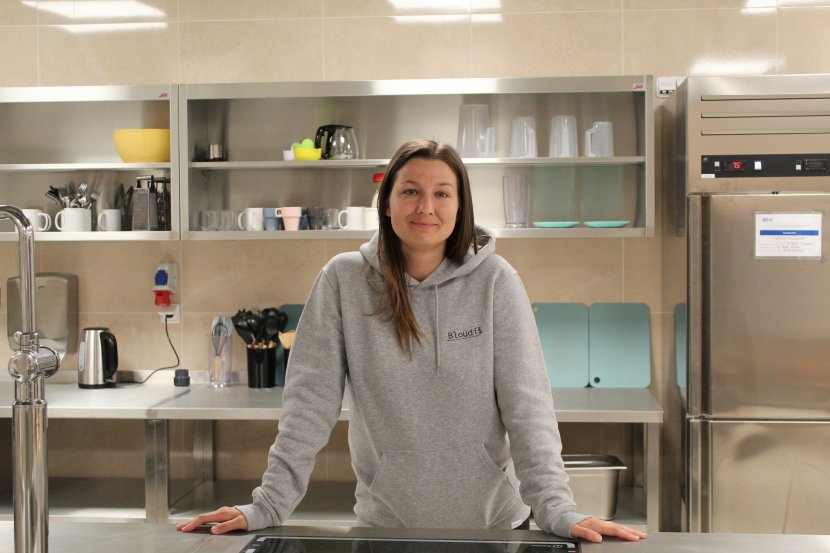How did you get into culinary therapy?
It actually happened by accident. I wanted to get more involved in direct work with patients and my colleagues suggested that I could use the kitchen that CDR has and start doing culinary therapy. I love to cook and I love being with patients, so I thought why not.
So the first experience came at the CDR?
When I used to work at the General University Hospital in Prague, I worked in the inpatient ward for patients with eating disorders, where we also cooked. In addition, I also worked with patients in the multisensory room Snoezelen, where we didn't cook, but we worked with tastes, smells and so on. So starting to lead culinary therapy was not entirely new to me.
What do you mean by culinary therapy?
It's a loose discipline that falls under the umbrella of creative therapies and it takes many forms. A lot depends on how a particular therapist grasps it, whether it is individual or group and so on, there are a lot of factors. It's not just about "cooking" something. Culinary therapy is a whole process, from the contact with the ingredients to the preparation to the fact that we eat the result. For example, you get random ingredients and use them to make a meal that reflects your day or your mood. The result doesn't matter, just like in art therapy it doesn't matter what you draw. What matters is the process, how you put the ingredients together. It's interesting to watch patients cooking and see how their diagnoses are reflected in the food. When we make a pizza, you can see the difference between someone who has anxiety or maybe ADHD. Everyone's personality is reflected in the creation of the dishes as well as in all the activities of the day. And a therapist can help model the whole process.
Do you deal with the nutritional side of food preparation in culinary therapy?
Since I started the project with nutrition therapist Dominika Roztočilová, we supplement the individual therapies with short food education sessions. In general, it depends on who is leading the therapy. For example, when I have a therapy alone, I am more concerned with the connection between food and soul than with nutritional values. There are studies that link the psyche, such as depressive states, to diet. So nutritional counseling in psychiatry could go that way in the future and look at food not only in terms of physical health but also mental health.
What do patients enjoy most?
The freedom they experience in the kitchen. They can do what they want and how they want, and they can afford to do it because cooking is such a common thing that you don't really have to check if everything is technically correct. They just take a tomato and cut up a tomato. It's natural. Some of them also really enjoy eating their creations, working together in a group, the way they can support each other. During culinary therapy, patients experience something that is actually a normal part of life, suddenly they don't feel like patients. We just create and eat the experience.
What do you cook most often?
Pizza is great. Because we have limited time in the slot, so we can't try foods that are very time-consuming. Sure, I could finish those dishes later, but that's not the same. We want to eat what we've created together, to finish the process. Patients also really enjoy being able to put together a full menu and each prepare one course. Someone will make soup, another lasagna, another dessert, and everyone enjoys the opportunity to work together.
How does the meeting work?
We usually spend two and a half hours together. At the beginning we talk about the topic we are going to cover, we also have different activities, puzzles, quizzes... Then we talk about safety principles and go to the kitchen where tasks are divided and cooking is done. Finally, we serve what we have created and taste it together. And we talk, like a psychiatric playdate. We talk not only about the food, but also about how the patients experienced the process. At the end, we have a reflection, where I ask them questions like how they worked together, what went well, what was difficult... It's more of a therapeutic part.
You yourself are somewhere between a therapist and a psychologist. What do you enjoy most about that combination?
As a nurse with therapeutic training, I can afford to be on the patient's side all the time. Psychologists sometimes have to switch between examination and therapy, it's something else. When I used to have to switch between nursing and therapy, that was challenging too. With what I do now, I'm comfortable with the fact that I'm still in psychotherapy. I don't feel the pressure to order or advise patients. I can just accompany them and explore how they would like to have it in their lives.














